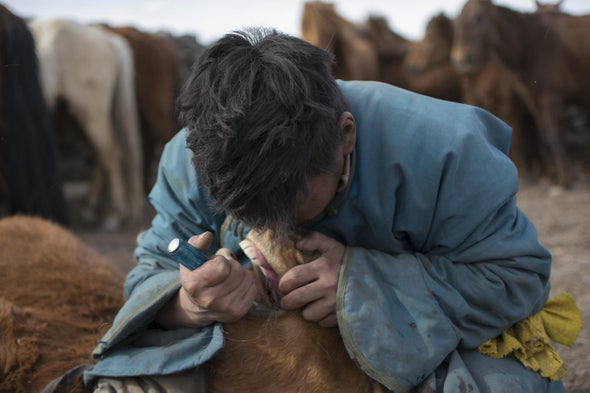(单词翻译:单击)
听力文本
Hi, I'm Scientific American podcast editor Steve Mirsky. And here's a short piece from the October 2018 issue of the magazine, in the section called Advances: Dispatches from the Frontiers of Science, Technology and Medicine.
The article is called "Quick Hits," and it's a rundown of some science and technology stories from around the globe, compiled by editorial intern Maya Miller.
From MEXICO
A Mexico City-based social enterprise is providing computer programming training to teenagers deported from the U.S. The organization, HOLA(CODE), is offering five-month software engineering "boot camps" in a bid to give the young deportees employable skills and ultimately boost the nation's technology sector.
From KENYA
Nairobi, a city with some of the world's worst traffic, is planning to implement car-free Wednesdays and Saturdays in two of its most congested areas. Policy makers hope this will encourage public transportation use and reduce air pollution.
From INDIA
Scientists wrote a letter to the Indian president to voice concerns over alleged political attacks on science. The letter criticized the government's decision to transfer a senior scientist to a less influential post after he complained about moves to privatize parts of the nation's central space agency.
From FINLAND
About 10,000 years ago humans lived in settlements in a part of southern Finland that is now under several meters of lake water, researchers found. A team of archaeologists and marine experts dove deep into the lake to find what are now the earliest known signs of human habitation in the region.

And From MONGOLIA
People were performing dentistry on horses on the vast grasslands of the Mongolian steppe roughly 3,000 years ago, according to a research team's findings. The study suggests nomads there were some of the first humans to use the animals for wide-scale transport, spurring the early beginnings of globalization.
That was "Quick Hits" by Maya Miller.
参考译文
大家好,我是《科学美国人》播客编辑史蒂夫·米尔斯基。以下是本杂志2018年10月刊的一篇短文,收录在“进展:科学、技术和医学前沿快报”版块。
这篇文章名为《要闻快报》,内容为全球科技新闻报道的摘要,由实习编辑玛雅·米勒汇总而成。
墨西哥
一家总部位于墨西哥城的社会企业将为被美国驱逐出境的青少年提供计算机编程培训。这家名为HOLA(CODE)的机构将开展为期5个月的软件工程“训练营”,为被驱逐年轻人传授就业技能,最终推动墨西哥科技产业的发展。
肯尼亚
内罗毕是世界上最拥堵的城市之一,该市计划在两个最拥堵的地区实施“周三周六无车”计划。政策制定者希望这项措施能鼓励民众使用公共交通出行,继而减少空气污染。
印度
科学家致信印度总统,表达了对科学遭遇“政治攻击”的担忧。信中称,因为一名高级科学家对国家中央航天局部分私有化的举措进行了投诉,政府便将其调到了影响力较小职位,科学家在信中对政府这一决定进行了指责。
芬兰
研究人员发现,约1万年前人类曾居住在芬兰南部地区的定居点,而现在这些定居点已淹没在数米深的湖水之下。该地区是目前已知最早的人类居住痕迹,因此,由考古学家和海洋专家组成的团队潜入湖中去探寻。
蒙古
一个研究团队发现,大约3000年前,人们就已经在蒙古大草原的广阔草地上为马匹治疗牙齿了。这项研究表明,游牧民是使用马匹进行大规模运输的首批人群之一,这推动了全球化的早期开端。
以上是玛雅·米勒汇总的《要闻快报》。
译文为可可英语翻译,未经授权请勿转载!
重点讲解
重点讲解:
1. in a bid to do sth. 努力;尝试;企图;
Notts County Council is to cut 200 jobs in a bid to escape being rate-capped.
诺丁汉郡议会将削减200个工作岗位,以逃避地方税限额。
2. plan to do sth. 计划;筹划;谋划;
We plan to hike the Samaria Gorge.
我们计划去撒马利亚峡谷远足。
3. according to 据(…所说);按(…所报道);
Heart disease is reversible in some cases, according to a study published last summer.
根据去年夏天公布的一项研究,心脏病在某些情况下是可以治愈的。


